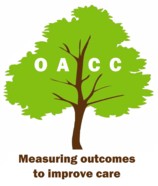POS was developed in 1999 for use with patients with advanced disease, and to improve outcome measurement by evaluating many essential and important outcomes in palliative care.
The Support Team Assessment Schedule (STAS), developed in 1986, was the precursor to POS. STAS was constructed to evaluate the work of palliative care support teams and consisted of 17 items, to be rated from 0 (best) to 4 (worst) by a professional caring for the patient.
POS builds on some of the strengths of the STAS, such as clinical application and ease of use. Importantly, POS also allows patients to self complete the assessments. POS is therefore a patient reported outcome measure when the patient version of POS is used. POS has demonstrated construct validity acceptable test/re-test reliability for seven items, and good internal consistency. Importantly, POS takes less than 10 minutes to complete by staff or patients.
Since first launched, POS has been tested and improved by researchers around the world. POS consists of ten items which assess physical symptoms, emotional, psychological and spiritual needs, a provision of information and support resulting in individual item scores and overall profile scores. An additional question provides patients with the opportunity to list their main problem/s. A global network of researchers and clinicians continue to collaborate with the creator of POS,
Professor Irene J Higginson, to ensure that POS remains an outcome measure of choice. .
IPOS is our new measure which incorporates the best of POS, POS-S and APCA African POS.
IPOS-Dem is a proxy-completed measure for people with dementia living in care homes. It is derived from IPOS, and developed for use by unqualified care staff working in care home settings. IPOS-Dem is designed to support systematic assessment of care home residents with dementia and incorporates common symptoms and problems experienced by this population. It is accompanied by an instruction manual on its use to support routine assessment of residents with dementia.
POS-S has 10 specific symptom-related concerns, prioritised by people with advanced disease, as most important to them. It can be used alone or alongside POS.
MyPOS - a myeloma-specific version of the POS has been developed and undergone preliminary validation. The questionnaire measures myeloma-specific quality of life issues and is intended for use in clinical care.
APCA African POS was developed specifically for use in Africa. The main differences are that it is designed to be administered by health professionals and has a zero to five scale.
Here we highlight new developments. Progress and availability will be reported on the website.
IPOS: We have now made the Integrated Palliative care Outcome Scale available for others to use, on this website. This follows IPOS cognitive interviewing and simultaneous testing in the UK and Germany. We are conducting further validation of IPOS and are currently seeking partners for this work. For more information or questions, please contact .
POS-QoL will be a tool for use in economic evaluation in palliative care settings, as an alternative or adjunct of the EQ5D or SF36. POS-QoL is directly derived from POS . For more information or questions, please contact .
POS E-learning is currently being developed. We anticipate four freely available modules. The modules cover the following areas: Module 1 'Introduction to Outcome Measurement', Module 2 'Choosing and using outcome measures', Module 3 'Introduction to the principles of outcome measurement implementation within organisations' and Module 4 'General Introduction to POS'. For more information or questions, please contact .
We would welcome any interest in new developments and would be happy to support and collaborate on potential POS projects. .







